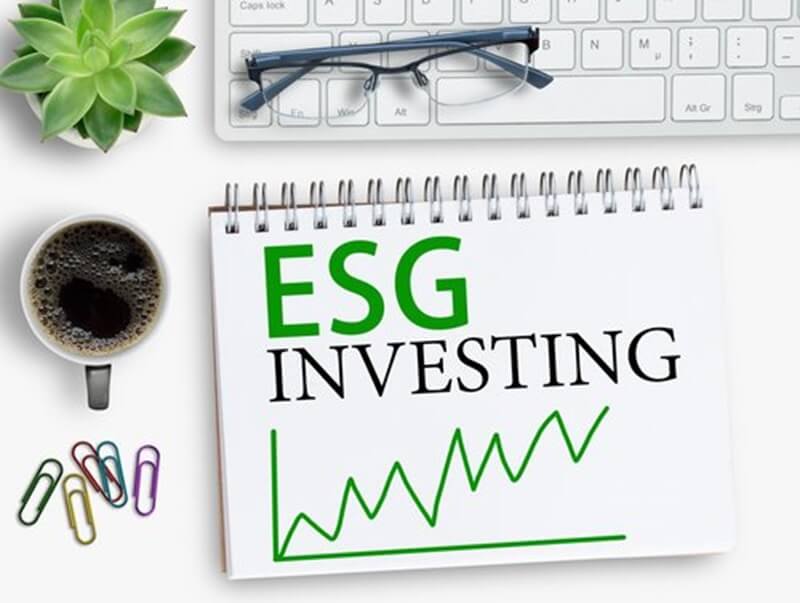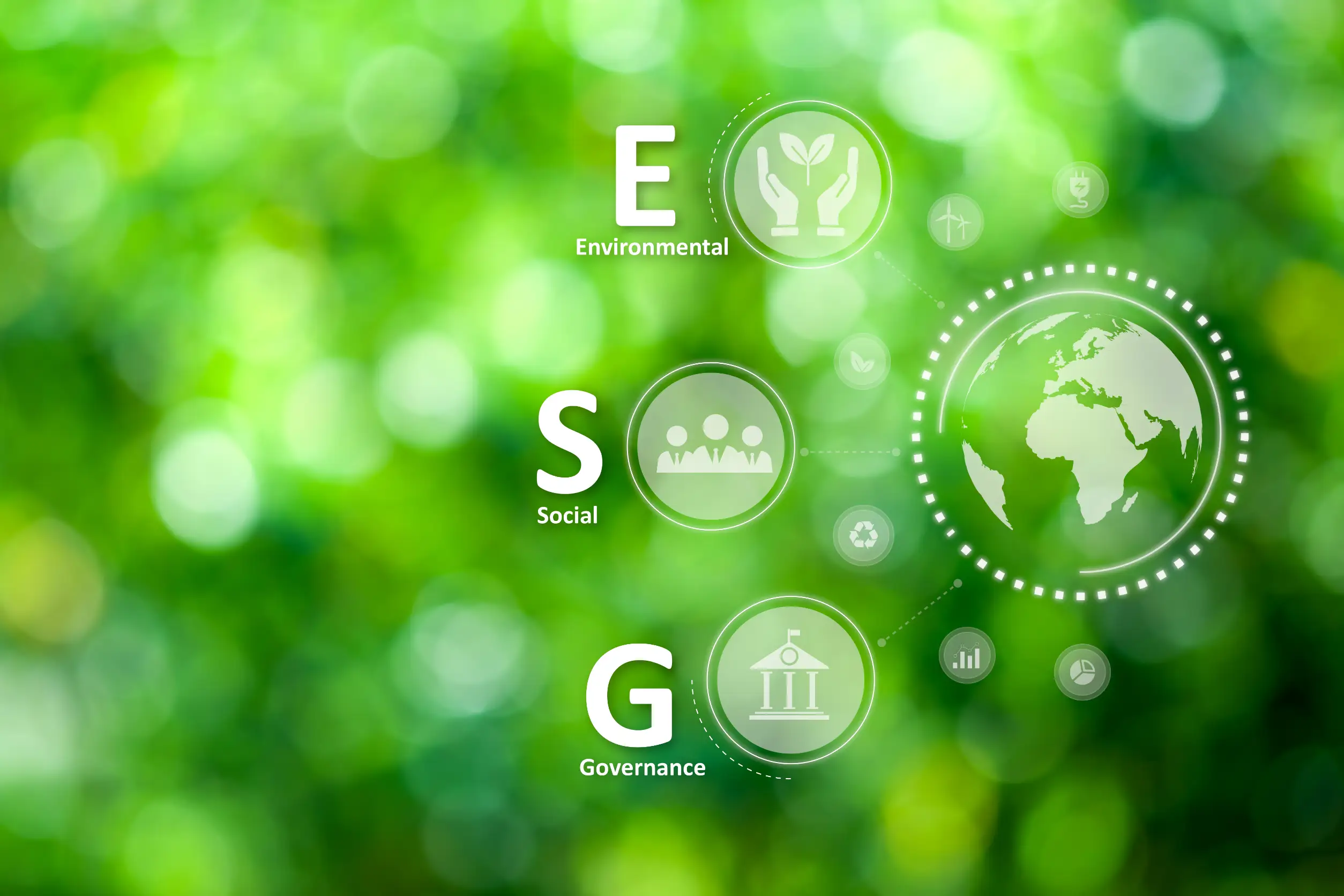Money talks, but now it’s also taking a stand for our planet and its people. ESG is not a buzzword — it’s reshaping how we invest and what counts as success. No longer is it just about what profits you rake in. It’s about how your bucks back better business, how they shape a future we want to live in. I’m here to guide you through how ESG is now a big player in the game of investment, not just for good PR, but because it pays off. Let’s deep dive into what makes ethics not just good, but profitable.
Understanding ESG and Its Role in Mainstream Investing
The Rise of ESG Integration Techniques
Now more than ever, investors are using ESG criteria to pick stocks. What is ESG? It stands for Environmental, Social, and Governance. These factors help investors find companies that are not just about making money, but also doing good in the world. People want to invest in clean energy and firms that take care of their workers. They also want companies that have good leaders and do the right things.
Why does ESG matter to investors? It helps them reduce risks and make more money over time. For example, if a company hurts the environment, it can get fined or lose customers. That’s bad for the business and for investors. With ESG integration techniques, investors can avoid these kinds of companies. They can find better options that care about the planet and people.
The Impact of Sustainability Investing Principles on Asset Management
What are sustainable investing principles? They’re rules that guide investors to choose investments that are good for the future. These principles look at how companies impact the world. Investors use them to find firms that can keep doing well for a long time. It’s all about making money while helping the planet and the people on it.
Asset managers are people or firms who make investment choices for others. When they use these principles, they do more than just pick stocks. They look for companies that can keep growing without harming the earth. They want firms that treat workers right and are run fairly. This way, investors can feel good about where their money goes.
Impact investing trends show that more and more money is going into these kinds of investments. And the results are clear. Many of these investments do just as well, if not better, than traditional ones. So investing with your values doesn’t mean giving up profits.
Now, let’s talk about ESG screening. What is it? It’s how investors filter out bad companies and find the good ones. They use ESG screening process to check if a company is risky or safe to invest in based on its ESG scores. This way, they pick the ones that are likely to do well and be safe for the planet and the people.
When we talk about climate change and investment, we have to consider the future. Companies that are helping to fight climate change are getting more attention. Investors see them as less risky because they are part of the solution.
Green bonds in portfolios are another cool thing. These bonds raise money for climate and environmental projects. When investors buy green bonds, they help fund clean energy and other important projects.
Corporate social responsibility is another big deal. It’s when companies do good things without being forced to. They might help the community or cut down their waste. Investors love this because it shows the company cares and is doing things the right way.
In the end, ethical fund selection is picking investments that match your values. It’s about making sure your money is doing good in the world while you grow it. And as we move forward, we’ll see more of these ethical, money-making options for all kinds of investors.
Integrating ESG Factors into Investment Decisions
Adopting Socially Responsible Investment Strategies
It’s about making money while doing good. We mix ethics with investments. This means choosing companies that care about the planet, people, and how they run their business. These firms tend to last and this keeps our money safe in the long run. We look for firms that go above just making profits.
For example, a company that finds ways to lower pollution shows they plan ahead. They also avoid fines and keep customers happy. This can lead to more sales and a stronger brand. Even big investors like pension funds now ask for these good deeds before they invest. They know that caring for society and the earth can also lead to better profits.
Performing ESG Screening and Risk Assessments
Next, we check if these firms really do what they say about ESG. We use a system called ESG screening. It’s like a background check for companies. We sift through lots of data from different sources. This data tells us about a company’s effect on the earth, how it treats people, and how it makes decisions.
We use ESG risk assessments too. These help us understand the risks that could hurt the company and our money. For instance, climate change could harm a company with lots of factories near coasts. If the seas rise, the repair costs are big. So we’d think twice before putting our money there.
But it’s not just risks; it’s also about finding chances to make more money. Firms that make green tech or renewable energy can grow fast. More people want clean air and less waste. By investing in these areas, we can earn more and support a safer planet.
Remember green bonds? They’re like loans to fund green projects. By buying them, we help pay for solar farms or cleaner transport. And they can be safer than regular bonds when markets get messy.
We stay sharp about rules and laws too. As the world wants more green action, rules change. Companies that are ready for these changes can do well. We make sure our investments are in line and often ahead. This way, we don’t get caught out when new laws come.
In all this, our goal is clear. We want to make money while making a positive mark. With ESG, we’re not just picking stocks. We’re choosing a future that our kids would be proud of. It’s a strong way to invest, and yes, it can be profitable too. The facts show us more and more that when we care for the world, it pays off. This is the heart of sustainable investing, and it’s what I work to get right every day.
Measuring the Performance and Impact of ESG Investments
Analyzing ESG Rating Systems and Reporting Standards
How do we know if a company is good at ESG stuff? We use ESG rating systems. These systems check how a company acts on issues like the environment, how they treat people, and how they run their business. They give a score to show if the company is doing a good or bad job. It’s like a report card but for big companies.
Now, picture a box full of different rating systems, all trying to tell you who’s the best at ESG. It’s confusing, right? That’s why it’s important to understand these systems. We use them to see how ESG stuff affects a company’s health and if they can keep making money over time. Good ratings can mean a company cares a lot about their impact and plans for the future. This makes investors happy because they like companies that think ahead.
But here’s a kicker: not all rating systems are the same. Some might focus more on the green part, like how much a company pollutes. Others look at how companies treat their workers or if they have good leaders. To make smart choices, we need to know how these ratings work and what they try to measure. This helps us to check if companies are truly being responsible or just pretending.
The rules about ESG reporting – how companies share their ESG stuff – are also key. They tell a company what they need to talk about and how to do it. Good rules mean it’s easier to compare different companies because they’re all telling us their ESG news in the same way. We use this info to make better decisions about where to put our money.
The Relationship Between ESG Compliance and Sustainable Fund Performance
Do funds that follow ESG rules do better than others? It looks like they can. When funds pay attention to ESG, they might avoid companies that could get in trouble later, like ones that harm the environment. These ESG-smart funds also invest in companies that are set up to do well in the long run because they treat people fairly, and they plan ahead. This can lead to better performance, which means more money for investors.
What’s really cool is that doing good can also mean earning more. Funds that care about ESG are more likely to invest in things that matter for the future, like clean energy or companies that are nice to their workers. And guess what? These things matter to a lot of people, not just investors. So when a fund picks these kinds of investments, they’re listening to what people care about. This can make the fund more successful because it picks companies that are in line with what’s important for our world.
In short, when we talk about ESG, it’s not just about being ethical. It’s about making smart choices that can actually lead to making more money while doing the right thing. And that’s a big deal for everyone — investors, companies, and the whole planet. It’s like a win-win situation, where doing good by the earth and people can also mean good business.
Future Trends and Developments in ESG Investing
Navigating Sustainable Investment Regulations and Investor Expectations
In the ESG world, laws and what people want are always changing. Investors today expect more than just profits; they want their money to do good in the world. We see new rules that make sure investments help the planet and society. This shift toward better investment practices is not just a fad, but a strong movement that’s here to stay.
We must keep our eyes open for new laws that shape how we invest. We follow sustainable investing principles not just because it’s the right thing, but it’s also what folks now demand. If we stick to these values, we won’t just answer to laws; we’ll win our investors’ trust.
Innovations in ESG Data Providers and Themed Investment Products
Gone are the days of guessing what’s good or bad in investing. Today, ESG data providers are the heroes, giving us the low-down on what companies are truly green or just green-washing. With their help, we can pick stocks that match our ESG goals without breaking a sweat.
Then, there’s themed investment products. Think of them as baskets of goodness that follow a theme like clean energy or ethical work practices. By tapping into ESG integration techniques, these products let us put our money where our mouth is – backing the themes we care about while looking out for our financial future.
Together, the data and these themed goodies guide us to invest with confidence. They don’t just help us feel good; they are building blocks for a brighter tomorrow. And that’s a win for our wallets and the world.
We’ve explored ESG in detail, from its growth in investing to how it shapes asset management. By integrating ESG factors into investment choices and assessing risks, investors are taking action for a better world. We’ve also looked at ESG performance, seeing how ratings and compliance affect funds.
Looking ahead, ESG will keep evolving as rules and data improve. As an expert, I believe that this focus on ESG isn’t just a trend – it’s a major shift in how we invest. It’s about making money while doing good, and I see it shaping our future in a big way. Let’s keep our eyes on these changes, as they will influence both our wealth and the world around us.
Q&A :
What does ESG stand for in mainstream investment strategies?
ESG refers to the consideration of environmental, social, and governance factors alongside financial factors in the investment decision-making process. In mainstream investment strategies, integrating ESG factors is increasingly common as investors seek to identify potential risks and growth opportunities that traditional financial analysis might overlook.
How does ESG integration impact investment decisions?
The integration of ESG criteria can significantly impact investment decisions by identifying companies that are better positioned to manage risk and capitalize on opportunities related to sustainability. This may lead to adjustments in portfolio selection to favor companies with strong ESG practices, which are often seen as more resilient to various external shocks.
Are ESG investments known to deliver competitive returns?
There is a growing body of evidence that suggests ESG investments can deliver competitive returns compared to conventional investments. Many studies indicate that companies with robust ESG practices tend to exhibit better financial performance over time, due in part to efficient management of resources and stakeholder relations.
Can ESG factors reduce investment risks?
Incorporating ESG factors into investment strategies can help investors reduce risks by identifying companies that proactively manage their environmental impact, maintain good governance practices, and foster positive social outcomes. Such companies may be less likely to face legal penalties, reputational damage, or business disruptions, which can protect investor capital.
How is the mainstream investment community responding to ESG trends?
The mainstream investment community is increasingly acknowledging the importance of ESG factors in sustaining long-term financial performance. Asset managers, institutional investors, and financial advisors are more frequently incorporating ESG criteria into their analysis and investment products, reflecting a broader trend towards sustainable investing.






